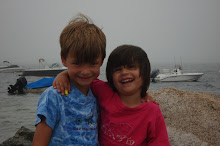Roger-Pol Droit is a research fellow at a think tank in Paris. A couple of years ago, he decided to study objects, to examine and write about a series of objects. He literally took the question, "how are things?" seriously and literally for several months. He wondered if objects have lives, which he admitted seems silly, but then he decided to examine them closely and deeply to see what emerged. He said later he wanted to "draw nearer to things, to spy on them."
What eventually emerged was the book, How Are Things: A Philosophical Experiment, which is astonishing and wonderful, and sadly not in print in the US.
Early on, he describes a bowl of onion soup.
"Set before me is a large bowl, steaming, still bubbling. Fragrant, crusted around the edges. Dark brown in some areas, almost black, tending to pale yellow in others. But what arrives is not a soup. More than the fumes, the steam, the waft of oven, what is set before me is a bowl. Solid, heavy, as if from the depths of time. From childhood and beyond. Prehistoric. A concave thing, protecting the liquid, preventing it from escaping. The shape of reassurance, instantly companionable and trustworthy.
"I almost forget what I am doing here, in the present. Here is one of the earliest, most primitive objects. This thing remembers the emergence of mankind. The larger primates had clubs, stones, rough likenesses of weapons and tools. But no bowls. Only with mankind to platters make an appearance: gourds, basins, bowls.
"The bowl inaugurates the function of receptacle. It is a fixture of reassurance. Amid the universal flux, the receptacle intervenes and stanches the endless flow. It preserves against dispersal. It prevents spillage. It suspends pouring. Liquid, which is fanatically committed to leakage and loss, is stayed. More effectively than cupping one's hands. And indefinitely. Effortlessly."
He goes on about the bowl. And then turns to the paperclip, which is an object of Eros. It binds things, he says, without paralyzing. A key is like a lover; it needs a lock. But beyond all this, is the emergence of the writer who studies these objects, something he muses on in the essays. Objects are our silent companions, he says, who store our memories and emotions.
It's a lovely book and so deeply calming.
THE EXERCISE: Describe your silent companions. A fiction instructor at Grub often gives this prompt, to write a story about an object. The object has to be the central drama of the story. It brings the characters together, brings the epiphany, if any. It seems like a difficult and pointless thing to do, but try it. Once you have an object, characters appear all around it.
 Hemingway once wrote a short story that was six words long. (For sale: baby shoes. Never worn.)
Hemingway once wrote a short story that was six words long. (For sale: baby shoes. Never worn.)




